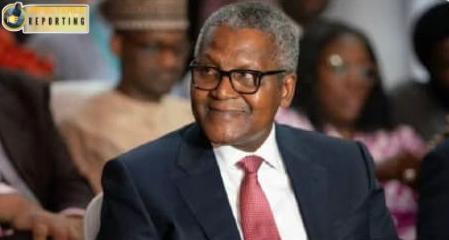Dangote Files Paperwork to Build Nigeria’s Largest Seaport in Ogun

Africa’s richest man and founder of the Dangote Group, Aliko Dangote, has formally submitted paperwork to the Nigerian government to commence the construction of what is set to become the country’s largest and deepest seaport.
The proposed port will be located in Olokola, Ogun State, and is poised to reshape Nigeria’s maritime infrastructure and boost the nation’s industrial logistics capacity. The filing, which was officially lodged in late June 2025, represents a critical step in Dangote's broader expansion strategy following the successful commissioning of his $19 billion refinery and ongoing fertilizer production projects. The new seaport is expected to complement Dangote’s existing operations, allowing direct exports of products such as urea, cement, and potentially liquefied natural gas (LNG). According to sources within the Dangote Group, the proposed Olokola Deep Sea Port will rival, and potentially surpass, the Lekki Deep Sea Port in Lagos, which currently holds the title of Nigeria’s deepest port. The Olokola port is designed with a draft depth and cargo-handling capacity that will support large container ships and LNG vessels, positioning it as a strategic trade hub not just for Nigeria, but for West Africa as a whole. The location of the port, Olokola in Ogun Waterside, holds significant economic potential. It is near the site of the long-abandoned Olokola Free Trade Zone (OKFTZ), a project originally conceived during the Obasanjo administration but stalled for years. The Dangote Group’s renewed interest in the zone aligns with Ogun State Governor Dapo Abiodun’s push to revitalize industrial projects in the area. Reports indicate that state authorities have already been working closely with Dangote’s team to fast-track approvals and lay the groundwork for construction. In addition to the port, Dangote has also begun work on a 6-million-metric-ton-per-annum cement plant in Itori, Ogun State. This facility is expected to be commissioned by November 2026 and will significantly increase the group’s cement production capacity in the region. Combined with the port, these developments underscore Dangote’s strategy of vertically integrating his supply chain—moving raw materials, manufacturing, and exports all within controlled logistics frameworks. The Olokola port will not only reduce dependence on Lagos ports, which have long suffered from congestion and infrastructure deficits, but will also open up access to global markets for goods produced inland. It is expected to significantly improve export logistics for Dangote Fertilizer and related companies, as the port will be directly linked to the group’s industrial sites through a network of road, rail, and pipeline infrastructure. There is also speculation that the port may serve as a future terminal for LNG exports, especially as Nigeria pushes to diversify its oil-based economy and monetize gas reserves. Dangote has hinted at plans to invest in LNG, and the Olokola site’s proximity to the Niger Delta gas basin offers logistical advantages for such ventures. The Federal Government is expected to review the paperwork in coming weeks. Stakeholders from the Nigerian Ports Authority (NPA), Nigerian Maritime Administration and Safety Agency (NIMASA), and the Infrastructure Concession Regulatory Commission (ICRC) have reportedly been notified of the project. If granted approval, construction could begin in 2026, with the full facility possibly becoming operational by 2028 or earlier, depending on the speed of regulatory clearances and land acquisition. The economic impact of the project is expected to be vast. Experts say it will generate thousands of direct and indirect jobs, boost foreign exchange earnings, and position Ogun State as a new commercial hub in Nigeria’s evolving industrial landscape. As Aliko Dangote continues to invest billions into critical sectors of the Nigerian economy—from refining to cement and now maritime logistics—this seaport project represents not just another milestone for his business empire, but a transformative infrastructure development for the nation.








